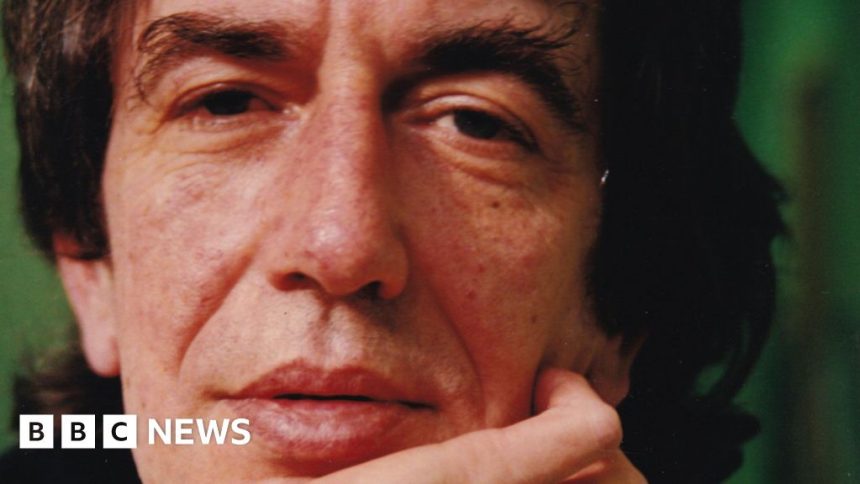Who was the real ‘Mr Nice’?
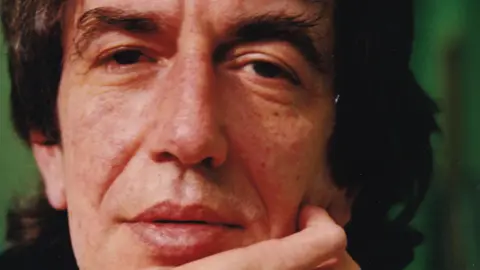 BBC/Passion Pictures Ltd/Paul Eddy
BBC/Passion Pictures Ltd/Paul EddyHoward Marks made his name initially as a notorious cannabis smuggler before becoming a campaigner, writer and something of a counterculture legend in the process.
But who was the man behind the criminal dubbed Mr Nice?
That rather depends on who you ask, a new two-part documentary has discovered.
To some he was a “dealer junkie” and narcissist obsessed with his own myth.
To others he was an opportunist, a rockstar and Robin Hood character.
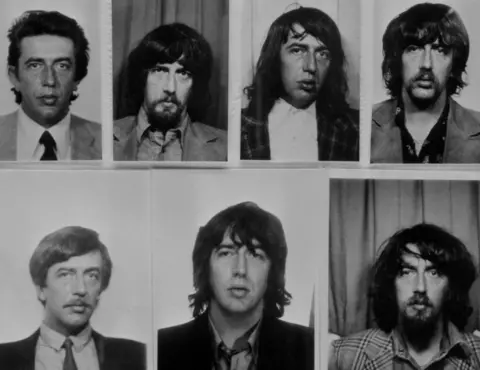 BBC/Passion Pictures Ltd/Alamy Stock Photo
BBC/Passion Pictures Ltd/Alamy Stock PhotoMarks was raised by his schoolteacher mother and merchant sailor father in Kenfig Hill in the county of Bridgend in south Wales.
His childhood friend Marty Langford remembers a child held back by orthopaedic issues.
“He was slow… he would be the last to be picked and I think that must have been very humiliating for him,” he told the makers of Hunting Mr Nice.
“Then he blossomed and started dressing up like a teddy boy and chasing the girls, getting them too.”
In 1964, Marks became the first boy from Garw grammar school to win a place at Oxford University, where he studied physics.
His teddy boy appearance was an instant hit with women.
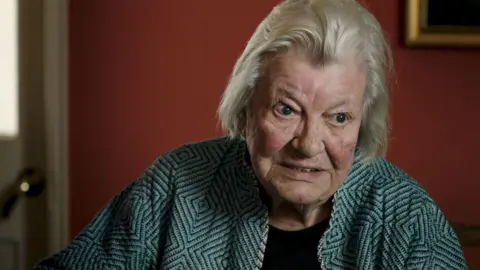 BBC/Passion Pictures Ltd/James Incledon
BBC/Passion Pictures Ltd/James Incledon“I fancied him immediately and he was really notorious for asking girls ‘do you want to go to bed with me?’,” recalled Lynn Barber, a writer and friend from Oxford who recalled Marks being an “exotic looking person and an exotic character”.
“He did say ‘do you fancy sleeping with me?’ and I did say yes and I’m glad I did.”
Lynn said Marks always had drugs on him.
“At the beginning he was seen as a sort of Robin Hood character who was helping people obtain cannabis,” she said.
“I think he was a great opportunist and I don’t think he had some master plan at all.”
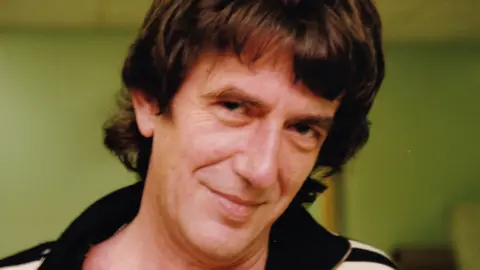 BBC/Passion Pictures Ltd/Paul Eddy
BBC/Passion Pictures Ltd/Paul EddyLater in life Marks would explain how he got into smuggling cannabis.
“I started dealing, buying and selling, initially just to be able to afford to have enough to smoke, which was quite common amongst students,” he says in an archive interview unearthed by the documentary.
“It changed my life completely.”
Twenty years after leaving Oxford he was running his international drug smuggling operation from his home in Palma, Mallorca, where he lived with his wife and three children.
By the mid ’80s he was believed to be the most prolific high-grade hashish smuggler in the business, importing thousands of tonnes of cannabis into the UK and US.
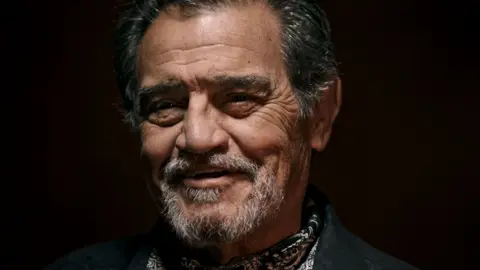 BBC/Passion Pictures Ltd/James Incledon
BBC/Passion Pictures Ltd/James IncledonAcross the Atlantic, Drug Enforcement Administration (DEA) agent Craig Lovato was determined to bring him down.
Marks had first come to his attention in 1973 when he got away with smuggling hash into the US by placing it into the speakers of British rock bands when they went there on tour.
Then in 1981 he was acquitted of drug charges after telling a jury at the Old Bailey he was an MI5 agent spying on IRA drug smugglers and gunrunners.
“I became obsessed with the desire to take him and his organisation down”, the former agent told the documentary.
Police in Spain had been secretly recording Marks’s phone calls and Lovato was sent over where he listened to hundreds of hours of Marks’ calls.
He found Marks to a very clever and convincing man.
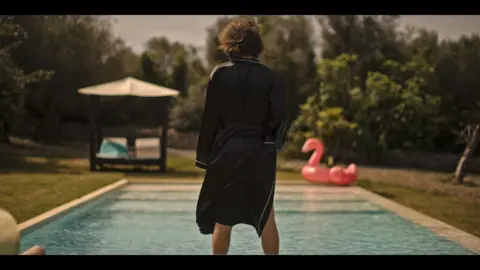 BBC/Passion Pictures Ltd/Patrick Smith
BBC/Passion Pictures Ltd/Patrick Smith“He felt that he was untouchable,” he said.
“He was particularly clever – he had a worldwide organisation where he had to launder millions of dollars, ships, aeroplanes and submarines, and do all that without any paperwork. You have to be incredibly organised.
“He always convinced the people he was talking to to do what he wanted to do.”
Lovato became almost obsessed with his nemesis.
“The man was literally an icon within UK law enforcement,” he said.
“He wasn’t your typical British gangster he was more like a playboy, he looked like a rockstar.”
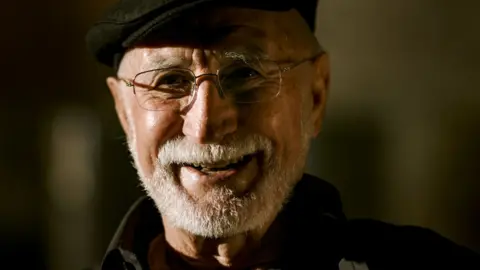 BBC/Passion Pictures Ltd/James Incledon
BBC/Passion Pictures Ltd/James IncledonIt was actually Marks’ own book that he had written after the 1981 acquittal that helped Lovato piece together his operation and identify the other criminals he worked with.
One of them was Roger Reeves, an investor in the operation who went on to serve 33 years in prison for drugs offences.
“For sure, Howard Marks was the worst thing that ever happened to me in my life,” he tells the documentary.
“I think that Howard didn’t care. He thought he was smarter than everybody else.”
Gerry Wills, who organised the transportation of the cannabis and went on to spend six years in an American prison, said Marks’ skill was bringing “misfits” together.
“Best Welshman I ever met,” he said.
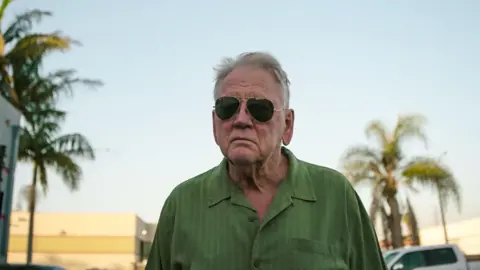 BBC/Passion Pictures Ltd/James Incledon
BBC/Passion Pictures Ltd/James IncledonIn 1988, Lovato finally got his man and Marks was arrested in Spain on trafficking charges.
He was extradited to the US and in 1990 jailed for 25 years.
BBC journalist Penny Roberts interviewed him from behind bars.
“He was moved. He hadn’t seen his children for the best part of 18 months and he knew that they would probably never come to see him in America,” she tells the documentary.
During her interview she asked him if his children were unnecessary casualties of his ego.
He told her: “Without the war on drugs I wouldn’t be here. Without my ego I probably wouldn’t be here either.”
In 1995 he was released on the grounds of his good behaviour.
This is when his second career as a writer, raconteur and campaigner for the legalisation of cannabis began.
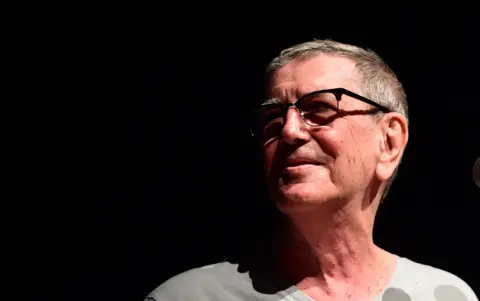 Press Association
Press AssociationHe began by writing his memoirs, Mr Nice, which became a bestseller, was translated into several languages and made into a film.
He regularly toured a one-man show in which he recounted stories about drug smuggling and his time in prison.
He had cameo roles in the 1999 movie Human Traffic, appeared on TV shows including Never Mind the Buzzcocks, collaborated on songs with the Super Furry Animals and made appearances at Glastonbury festival.
He also began campaigning for the legalisation of cannabis and stood for election to Parliament in 1997 on a single-issue ticket of reforming drugs laws.
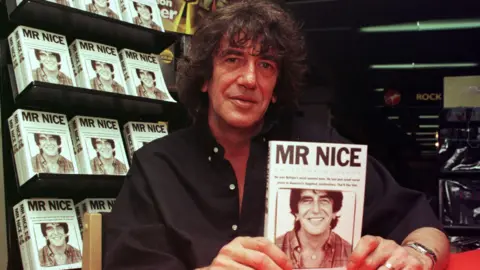 Press Association
Press AssociationMarks died from cancer at the age of 70 in 2016.
But away from the spotlight who was the real Howard Marks?
“He’s not an evil guy. He enjoyed smoking and it got out of hand,” said his childhood friend Marty.
He added: “He was a dealer junkie, he couldn’t give up the deals… it was feeding his narcissism.”
Lovato recalls a man “obsessed with his own myth”.
Perhaps surprisingly he speaks of Marks with fondness.
“I have a sense of loss with regard to Howard,” he said.
“For a time period we were uniquely tied to one another and even though he was a crook, he had no moral values, blah blah blah, he had some very redeeming values as well.
“I’m regretful that he’s gone.”
Episode one of Hunting Mr Nice is on BBC One Wales and BBC Two at 21:00 GMT on 21st November and available on iPlayer on the same day




